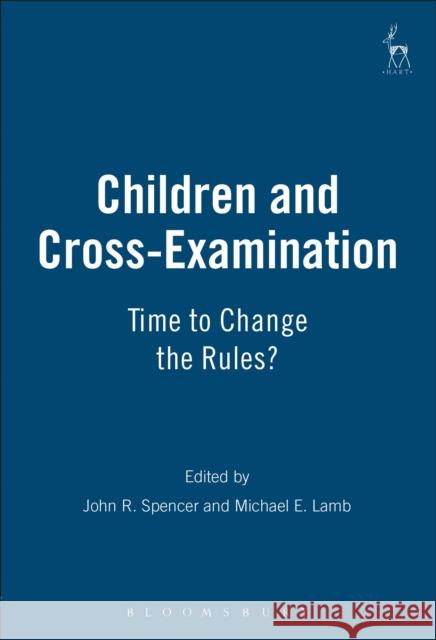Children and Cross-Examination: Time to Change the Rules? » książka
Children and Cross-Examination: Time to Change the Rules?
ISBN-13: 9781849463072 / Angielski / Miękka / 2012 / 314 str.
In 2009 in the UK, Stephen Barker was convicted of rape on the evidence of a little girl who was four and a half years old at the time of Barker's trial, and about three and a half when she was first interviewed by the police. The high point of the proceedings was the child's appearance as a live witness in order for Barker's counsel to attempt a cross-examination. This case focused attention on the need - as imposed by current English law - for even tiny children to come to court for a live cross-examination. In 1989, the Pigot Committee proposed a scheme under which the whole of a young child's evidence - cross-examination and all - would be obtained out of court and in advance of trial. In 1999, a provision designed to give effect to this was included in the Youth Justice and Criminal Evidence Act, but it has not yet been brought into force. The full Pigot proposal was implemented, however, in Western Australia, and similar schemes now operate in a number of European jurisdictions. This book of essays examines a number of these schemes, and argues the case for further reforms in the UK. It will be an important study for both academics and practitioners interested in the criminal justice system, and it will also appeal to those interested in the role of children in court more generally.











